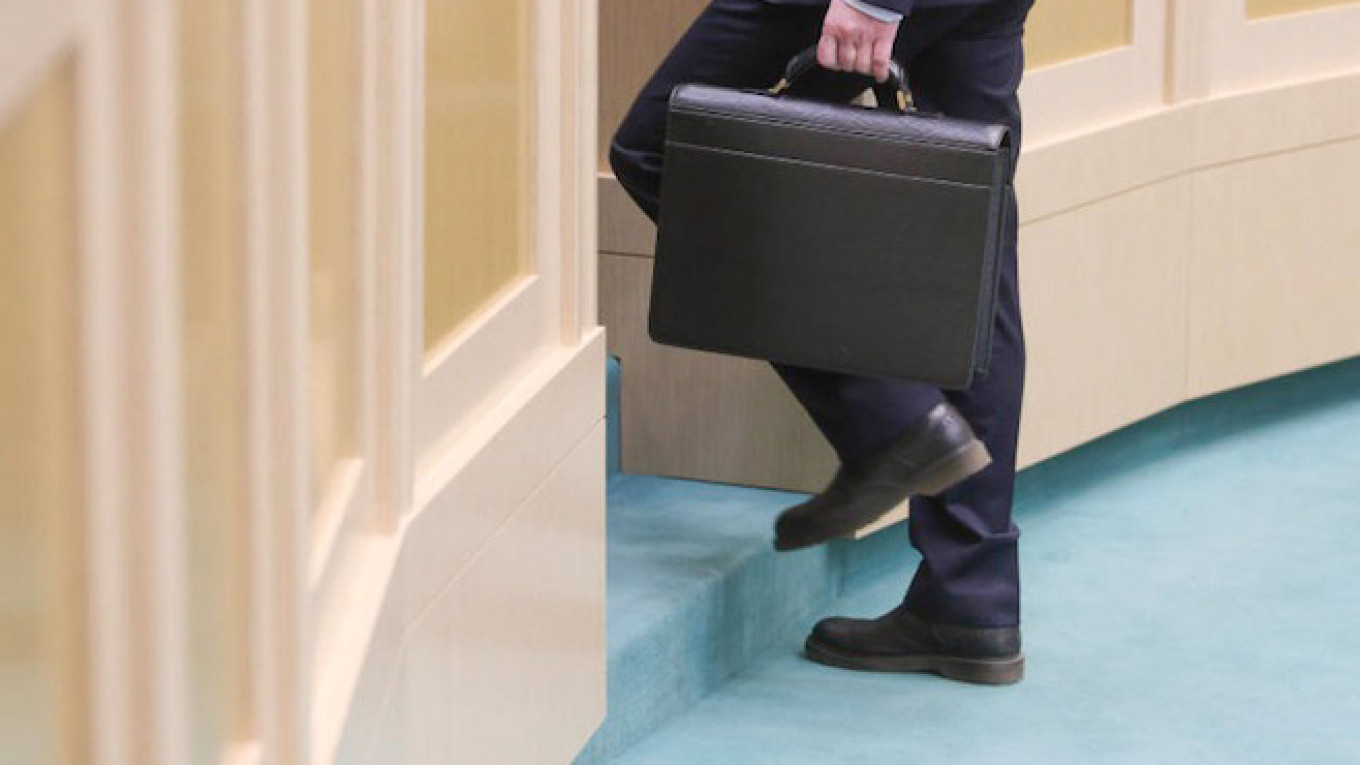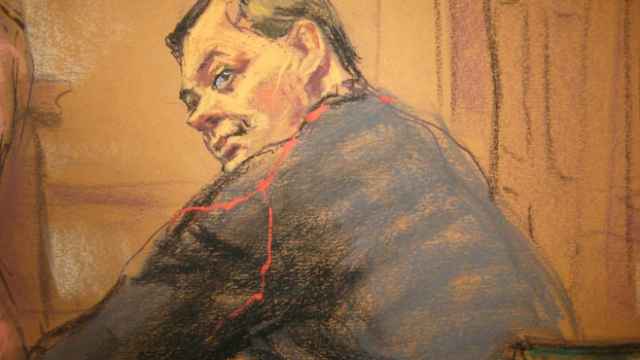NEW YORK — Three men accused in the latest Russian spy case in the United States didn't hide behind fake identities and weren't stealing military secrets. They even appeared annoyed that their assignment wasn't more like a James Bond film.
Their alleged plot to dig up "economic intelligence" on possible banking penalties and alternative energy sources may not be the stuff of Hollywood movies, but U.S. authorities insist the case is proof that Russian spying is thriving in America more than two decades after the end of the Cold War.
It also shows the resources the United States still throws at those suspected of being spies for Russian President Vladimir Putin's government: listening bugs, hidden cameras and intercepted phone calls.
"Russian spies continue to seek to operate in our midst," U.S. Attorney Preet Bharara warned after the arrests last week.
Russian Foreign Ministry spokesman Alexander Lukashevich countered by accusing U.S. authorities of manufacturing a spy scandal as part of its "anti-Russian campaign."
Annemarie McAvoy, a Fordham Law professor and former federal prosecutor, said the latest case shouldn't be taken lightly.
"We have to be concerned about the economic warfare end of this. That's what worries me," she said, noting the crippling cyber-attack on Sony Pictures. She said the arrests might show that the spy game has changed as countries seek information to possibly attack businesses and the economy.
The case against Yevgeny Buryakov, Igor Sporyshev and Viktor Podobny comes less than five years after the arrest of 10 covert agents — a sleeper cell referred to as "The Illegals" by the SVR, the foreign intelligence agency headquartered in Moscow — who led ordinary lives in the United States using aliases. All 10 pleaded guilty in federal court in Manhattan to conspiracy charges and were ordered out of the country as part of a spy swap for four people convicted of betraying Moscow to the West.
Federal prosecutors in Brooklyn brought another spy case in 2013, accusing Alexander Fishenko, a naturalized U.S. citizen from Kazakhstan who made millions off his Texas export firm, of being a secret agent for the Russian military. Fishenko, who pleaded not guilty, is scheduled to go to trial later this year.
Not everyone views the latest case as a scary new wrinkle in spy tactics.
"What is interesting about this case, just like the 2010 sleeper spy case, is how little these accused Russian spies are accomplishing. Either the FBI is just getting the low-hanging fruit, or the Russian foreign intelligence agency isn't doing its job very well," said Kimberly Marten, a political scientist at Barnard College, Columbia University.
Prosecutors say the latest investigation exposed espionage by Sporyshev and Podobny, who held low-level diplomatic positions, and Buryakov, a Bronx resident with a visa and a position in the Manhattan branch of a Russian bank.
U.S. prosecutors say under orders from Moscow, Sporyshev's main duty was to give Buryakov assignments to gather intelligence on potential U.S. sanctions against Russian banks and efforts in the U.S. to develop alternative energy resources. They say Sporyshev and Podobny would analyze the information and report back to the SVR at a Russian Federation office in New York they thought was secure but apparently was bugged.
In one secretly recorded conversation, Podobny complained to Sporyshev that their work was nothing like "movies about James Bond," according to the papers.
"Of course, I wouldn't fly helicopters, but pretend to be someone else at a minimum," he said.
Sporyshev griped that he too thought he "at least would go abroad with a different passport."
The court papers also detailed demands on Buryakov from SVR to come up with questions for a Russian news organization — believed to be TASS — to ask about the inner workings of the U.S. stock market.
Normally, prosecutors said, the two men would speak on the phone in code to set up meetings outdoors, with "Buryakov passing a bag, magazine or slip of paper to Sporyshev," court papers said.
Some meetings took place near Buryakov's red-brick home on a quiet block in the Bronx.
Neighbors said 39-year-old Buryakov, his wife and two children largely kept to themselves. They recalled a man sitting in a car on the block for hours at a time — in hindsight, they say, it was probably surveillance — but were surprised when the FBI raided the home last Monday.
A judge ordered Buryakov held without bail. Podobny and Sporyshev, whose diplomatic status gave them immunity, have returned to Russia.
A Russian spokesman told the TASS news agency that Buryakov "vehemently denies the alleged offenses."
A Message from The Moscow Times:
Dear readers,
We are facing unprecedented challenges. Russia's Prosecutor General's Office has designated The Moscow Times as an "undesirable" organization, criminalizing our work and putting our staff at risk of prosecution. This follows our earlier unjust labeling as a "foreign agent."
These actions are direct attempts to silence independent journalism in Russia. The authorities claim our work "discredits the decisions of the Russian leadership." We see things differently: we strive to provide accurate, unbiased reporting on Russia.
We, the journalists of The Moscow Times, refuse to be silenced. But to continue our work, we need your help.
Your support, no matter how small, makes a world of difference. If you can, please support us monthly starting from just $2. It's quick to set up, and every contribution makes a significant impact.
By supporting The Moscow Times, you're defending open, independent journalism in the face of repression. Thank you for standing with us.
Remind me later.






